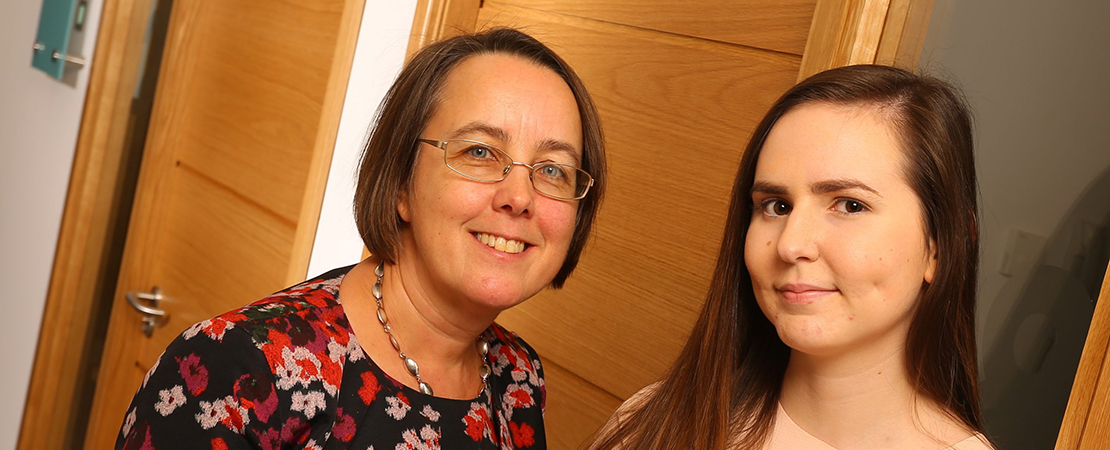
In conversation with Linda Conlon, Chief Executive of the International Centre for Life, about inspiring young people through careers education
The world of work today is very different to the one I first joined. It’s estimated young people can expect to change careers between five and seven times, and at least two of those will not be of their choosing. Looking back with what may be rose-tinted glasses, it seemed easier to move around and experience different jobs when I began my career.
I think if I was looking to offer some general advice to young people today it would be to keep your career options open. Don’t close them down before you have to and focus on one specific area.
It’s a positive thing to sample different work environments. I’ve worked for a multinational company, the government, a regional development agency, and for a number of years I ran my own marketing consultancy, which allowed me to work with a range of businesses and clients.
It’s not always about what you do, but the environment that you work in. If you’re happy and comfortable in your chosen environment you feel like you belong, and that gives you the best chance of a fulfilling and rewarding career.
It always strikes me as sad when some people are stuck in jobs they don’t like. You spend more time at work – in normal circumstances – with your work colleagues than you do at home. Why then would you do something you don’t enjoy?
When I was at school, I didn’t really benefit from any specific careers advice; there certainly wasn’t a sustained programme to recognise talent. Someone would come to the school for half a day and ask what you liked doing. I do remember someone saying they wanted to travel and they were advised to be a bus driver.
It was also quite common at the time to choose between arts-based or science-based subjects. Now, people don’t necessarily have to do the classic trio of subjects – maths, physics and chemistry. People can choose to study a mix of subjects that gives them a breadth of knowledge.
It’s really important to introduce people to the world of work from an early stage and that’s something we try to do in the centre’s visitor attraction, Life Science Centre. We offer an informal learning environment and we want to inspire people when they visit, ignite their curiosity and get them thinking in different ways. We encourage people to think creatively and imaginatively. Those skills are important in the world of work, particularly in science.
We have a mantra at Life Science Centre, which is ‘hands on, minds on, hearts on’. I firmly believe people learn better when they’re actively engaged in something that interests them.
It’s also important to say it’s okay to not know what you want to do in the future; people shouldn’t be worried or ashamed about that. Take your time and get it right.
We often talk about change in the workplace, and we’re currently seeing that at an unprecedented rate. That’s why I think young people should be flexible and not take themselves down a route they’re not sure of.
Parents have an important role to play in that, too. Young people often find they move unconsciously down a career path prompted by their parents.
Sadly, stereotypes still prevail in the science and technology sector, and some of that can come from parents, especially those without an interest in the area. That can discourage young people from pursuing STEM subjects, so we need to help students and their parents understand how science qualifications can stand them in good stead across many different careers.
In the gaming sector, for example, a large majority of people have qualifications in maths and physics. Unfortunately, young people don’t often make the connection between those exciting, emerging jobs and science subjects.
I’m often asked about my role within the science sector, and what skills and qualifications it takes to become a chief executive.
The first skill is to learn from your mistakes. We all make them, but it’s how you learn from the experience that’s important. I think it also benefits your staff to see someone in a senior leadership position make a mistake and own up to it. It gives them the courage to do the same.
Something that’s always been, and will continue to be important, is communication. It’s essential to be able to explain to people not just what, but why they’re doing something. When people don’t know what’s happening, they fill in the gaps themselves. Communications is something I feel I have a particular strength in, as I worked in the industry for a long time. I believe communications should be frequent, honest and simple.
Developing effective relationships is vital, too. I think a lot of people forget when you have a relationship with an organisation, it’s with the people within it.
Whilst it might sound obvious, listening skills are very important. If you think about our current situation, senior leaders need to understand how it’s impacting staff, their families and their lives. You only get that from listening.
You also need to take risks, and that’s something we’re very good at in Life. As a not-for-profit independent trust, we have a lot of autonomy and entrepreneurial spirit. We used that to adapt during the coronavirus pandemic to become an NHS large vaccination centre.
Taking risks fits with my next attribute, which is thinking outside the box. Despite being a not-for-profit, we think commercially at Life. By making a profit we can improve and expand the job we do – and do it better. That’s why it’s key to learn from other sectors and other businesses.
If I wasn’t chief executive of Life, I’d like to be either a wildly successful criminal barrister, or a wildly successful crime fiction writer. I’m always told only a small handful of people become successful criminal barristers. I’d definitely want to be one of the rich ones.
Linda Conlon is Chief Executive of the International Centre for Life, which opened in May 2000, with the purpose of inspiring everyone in North East England to explore and enjoy science and to discover its relevance to their own lives.
Linda is the first woman from Europe to be elected as Chair of the Association of Science and Technology Centres (ASTC), a body which represents more than 600 centres from over 50 countries. Linda is also a former board member of Ecsite, the European network of science centres and museums, and former Chair of its UK equivalent.
In recognition of her outstanding service to science and science education in North East England, she was awarded an MBE in January 2016.








